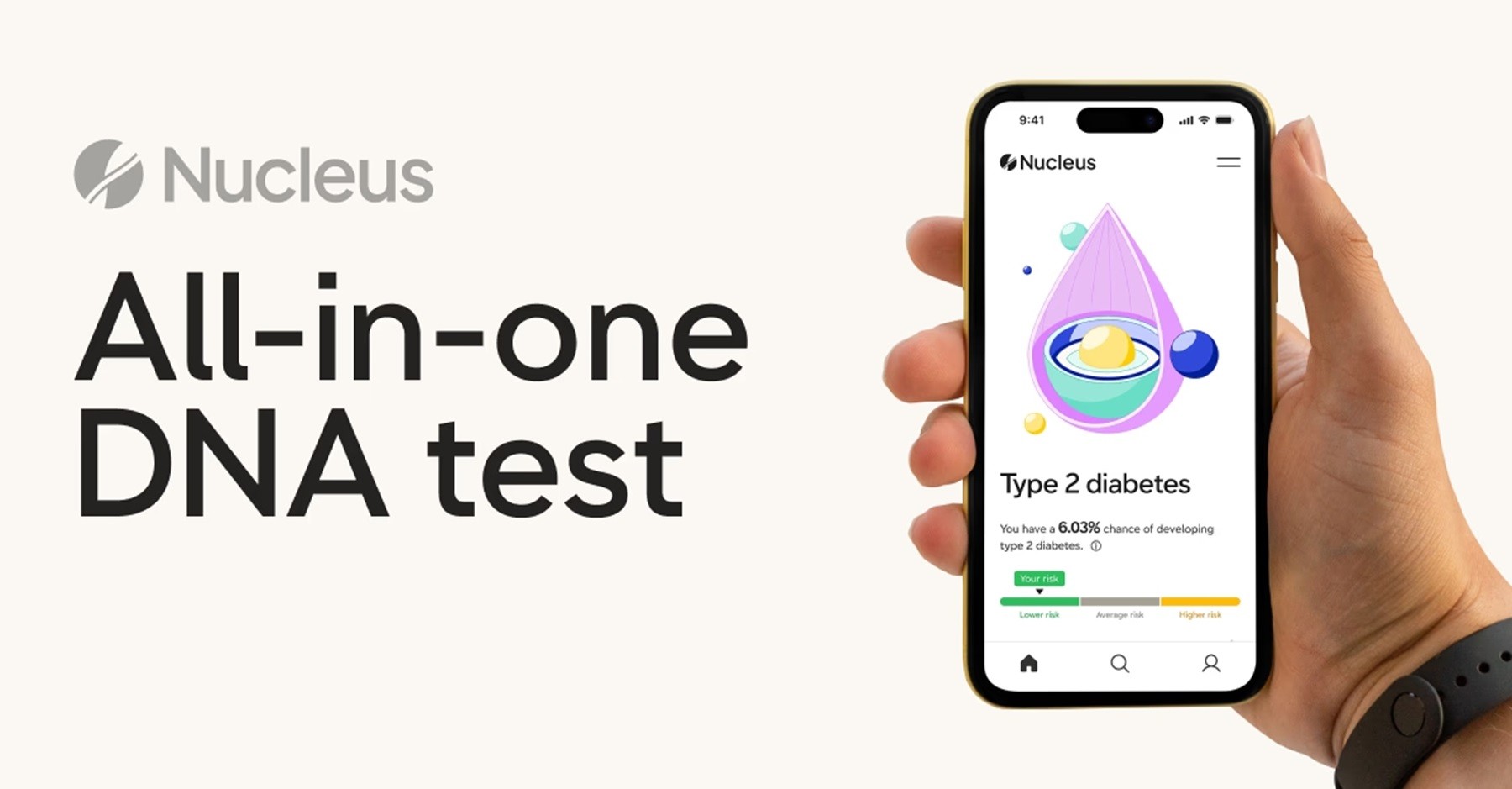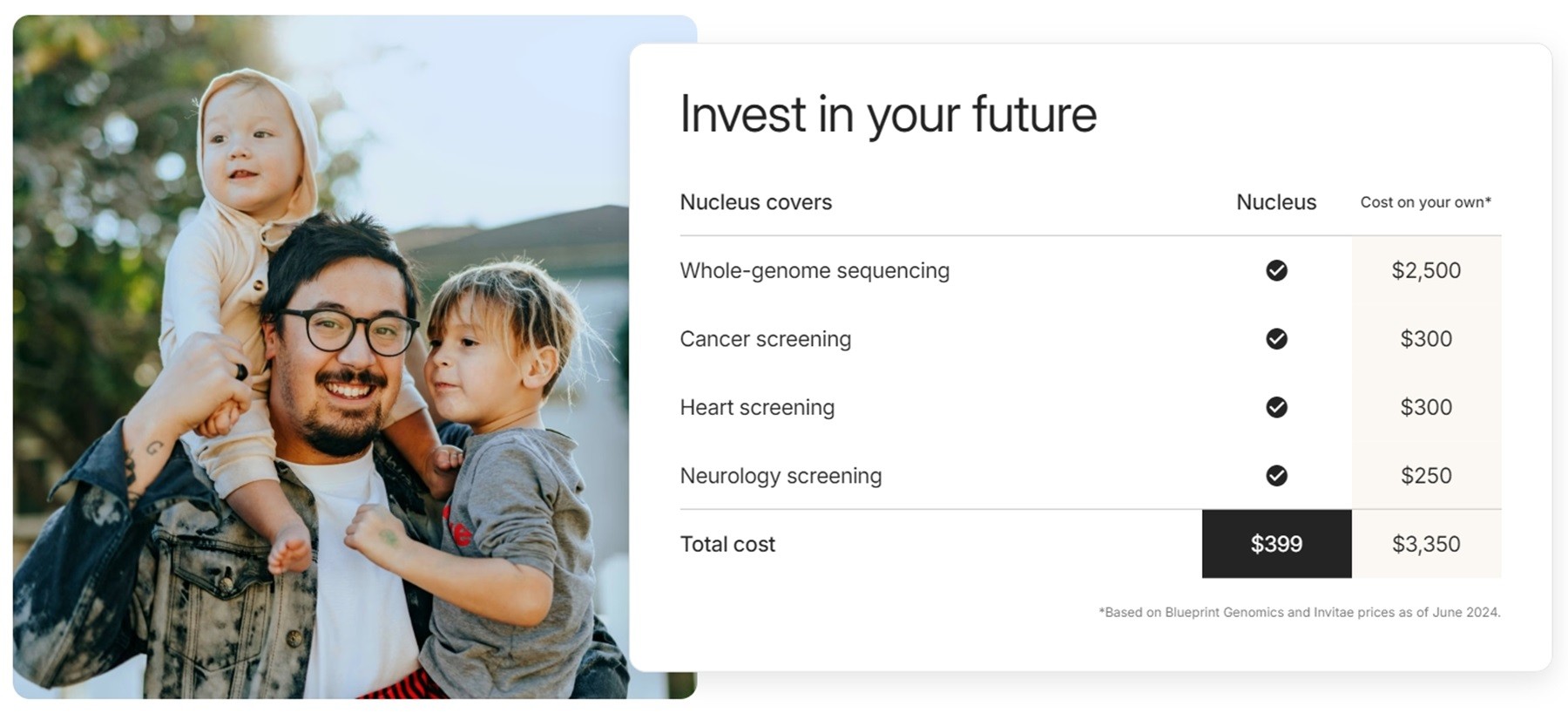Peter Attia, a physician and longevity expert, considers “exogenous molecules” — substances or formulations that modify your body chemistry — to be one of the five key factors that influence your chances of living a long and healthy life.
With prescription medications, you have a clear path: your doctor gives you a prescription, and that’s that. But when it comes to supplements, things aren’t always as straightforward. There are so many options out there that it can feel like a bit of a guessing game. That's why turning to experts like Attia, who dive deep into the science behind these supplements, can help you figure out what really works and what doesn’t.
We break down Peter Attia’s supplements protocol, share his opinions on various substances, and provide tips for fine-tuning your own stack for maximum benefits.
Peter Attia’s recommendations for building your supplement stack
Attia’s stance on supplements and health in general is that there’s no one-size-fits-all solution. Every person is unique, so it’s important to consider your physiology, lifestyle, and goals before applying any advice. Figuring out what works may take some time, so it’s natural to modify your approach as you go.
To help build an effective supplement stack, Attia recommends the following:
Determine the objective: With a clear idea of what you’re trying to achieve, it will be easier to select the right supplements to bring you closer to that goal. Whether it’s better sleep, increased energy, or improved performance, understanding your objective is key to choosing the supplements that will best support your needs.
Measure biomarkers: Tracking relevant biomarkers allows you to monitor how the supplements are affecting your body. This helps you fine-tune your stack and ensures that the supplements are actually working as intended.
Analyze the risk-to-benefit ratio: Before adding a supplement to your routine, Attia advises weighing the potential benefits against any risks. Consider the supplement’s mechanism of action, its short-term and long-term effects, and whether the benefits outweigh any possible drawbacks.
How Peter Attia approaches supplementation
In his podcast, Attia has shared that he selects supplements based on the latest scientific research, selecting primarily those that have clinically significant effects on health and longevity.
He then monitors his response through regular biomarker testing and keeps an eye out for scientific advancements. If he uncovers new information, he’ll make changes. For example, he may:
Remove or add a formulation
Switch brands
Modify the dosage
For example, Attia tested his omega-3 levels — specifically DHA and EPA — through blood tests. Based on the results, he adjusted his dosage to keep his levels within the optimal range of 10–12%.
Bonus read — Learn about Peter Attia’s diet, workout routine, and sleep regimen.
What supplements does Peter Attia take?
In the following sections, we’ll discuss the supplements Attia has claimed to take on podcasts and social media. You’ll read about his experiences with these substances, his rationale for choosing them, and some brands he recommends.
Attia has often stressed that his supplement regimen is tailored specifically to him. It’s based on trial and error, scientific advancements, and his personal health needs. He encourages others not to follow his exact stack without doing their own research and considering their unique goals and health conditions.
It’s also important to note that some supplements can interact negatively with medications, other supplements, or specific medical conditions. If you have concerns, it’s always best to consult your doctor before adding new supplements to your routine.
With caveats out of the way, let’s break down Peter Attia’s supplement stack:
Magnesium
EPA and DHA
Methylfolate and methyl B12
Vitamin D
Theracurmin
Probiotics
Protein powder
Athletic Greens
Creatine monohydrate
Ashwagandha
1. Magnesium
Peter Attia emphasizes that magnesium is a cornerstone of his supplement protocol. It plays a vital role in many bodily functions, including energy production, bone health, and DNA/RNA synthesis. While some people may secure sufficient magnesium intake through diet, others need or prefer to take supplements.
Magnesium comes in many forms and can have many effects, which is why Attia takes three different types of supplements:
Tip 💡
Individual responses to magnesium and other substances can vary. For example, some people may have normal magnesium levels on a blood test but experience deficiency symptoms like depression and fatigue. This may be caused by various factors, including genetic variants and health issues like type 2 diabetes, kidney diseases, and gastrointestinal diseases.
The good news is — you can take a DNA test to better understand your susceptibility to magnesium deficiency and other conditions that can affect the absorption and use of this substance.
For a comprehensive and reliable overview of your genetic predispositions, go with Nucleus Premium, a whole-genome test. Nucleus analyzes nearly 100% of your DNA and screens for all the above-mentioned conditions and over [NUM_CONDITIONS_SCREENED] others.
You can take the test from the comfort of your home and receive easily understandable results with actionable advice to guide your supplement and health choices. Order your test kit today!
2. EPA and DHA
EPA and DHA are types of omega-3 fatty acids, often referred to as “healthy fats,” that form the structure of cell membranes, provide energy to the body, and support the immune system. These two types of omega-3s are most commonly studied because they’re essential for overall health, but the body cannot produce them in sufficient amounts.
The best way to boost your omega-3 levels is through food or supplements, as EPA and DHA are found naturally in fish and fish oils. Still, most people in the U.S. don’t get enough of them through diet, so they often turn to supplements.
Attia takes several EPA and DHA capsules a day. He determines his dosage based on blood testing, which he undergoes regularly to ensure his levels remain between 10% and 12%.

Source: Nataliya Vaitkevich
3. Methylfolate and methyl-B12
According to Attia, elevated levels of homocysteine, an amino acid involved in creating other essential compounds, may have a negative impact on the body. While it's still unclear whether this relationship is causal, Attia points to a specific mechanism that may help explain this potential link.
Homocysteine may slow down the clearance of symmetric and asymmetric dimethylarginine (SDMA and ADMA), compounds that are crucial for blood vessel health. By impairing the clearance of these compounds, homocysteine may reduce nitric oxide availability, which is important for blood flow and kidney function, ultimately affecting many other body systems.
To reduce the risk, Attia takes methylfolate and methyl-B12, active forms of folate and vitamin B12. He claims these supplements are relatively low-risk when taken at moderate doses.
Note that some sources suggest the most effective way to lower homocysteine involves a combination of B12, folic acid, and B6. While Attia used to take B6 in the past, it’s unclear if he still does. He has also warned against over-supplementation with B6, as it may lead to peripheral nerve damage.
4. Vitamin D
Vitamin D is a nutrient essential for bone health — it promotes calcium absorption and balances phosphate levels. It also helps reduce inflammation and modulates processes like:
Cell growth
Neuromuscular function
Glucose metabolism
While vitamin D exists naturally in some foods — mainly fish oil and fatty fish like salmon and tuna — you can also get this compound from sunlight exposure.
Although Attia claims to spend plenty of time outside, his vitamin D levels are low if he doesn’t take the supplement. His daily dosage is 5,000 IU, which allows him to raise his levels from 30 to 50 ng/mL.

Full post: Instagram
5. Theracurmin
At the moment, Attia also takes Theracurmin, capsules of highly absorbable curcumin, which you may know as turmeric.
Curcumin is a bright yellow spice that has been used for thousands of years in Ayurveda and Chinese medicine to treat various health conditions. Attia primarily takes it for its alleged ability to preserve and improve cognitive function, though research suggests it may also:
Reduce inflammation
Have antimicrobial and antiviral properties
Protect cells from damage
Lower the risk of cancer and diabetes
Help manage osteoarthritis pain
6. Probiotics
Our gastrointestinal tract houses trillions of microbes that help break down food, fight harmful bacteria, and regulate the immune system. In some cases, such as excessive use of antibiotics, the balance of these bacteria can be disrupted, potentially leading to various health issues.
Some evidence suggests probiotics may help restore the balance, though more research is needed, as not all types of probiotics have been well-studied. Probiotics are found in foods like yogurt and pickles, but supplements can sometimes be a more practical and effective option.
Although he allegedly has no affiliation with the company, Attia recommends Pendulum because it’s one of few brands that can produce Akkermansia — an anaerobic bacteria that thrives in the low-oxygen gut environment.
Attia uses three Pendulum products, all of which contain Akkermansia:
7. Protein powder
Like most biohackers and fitness enthusiasts, Attia incorporates protein powder into his daily routine. Still, consuming protein doesn’t only provide muscle and exercise support — it also benefits your:
Immune system
Heart
Brain
Skin
If you can’t meet your daily requirement through foods like meat, eggs, and milk, you can use a protein supplement. It’s commonly sold as a powder you can mix with a liquid of your choice.
According to Attia, whey isolate is the best option for protein supplementation. He stresses the importance of choosing high-quality products and avoiding proprietary blends, especially those containing nitrogen. Although his stance on fasting has evolved over time, he still prioritizes protein intake, aiming for around 1 g of protein per pound of body weight daily.

Full post: Instagram
8. AG1
AG1, formerly known as Athletic Greens, is a drink-based supplement marketed to support daily performance and healthy aging. It contains a blend of:
Vitamins
Probiotics
Nutrients sourced from whole foods
Attia has mentioned that he takes a green AG1 drink in the morning, though he didn’t specify the effects he’s experienced. It’s also important to note that Attia is an investor and scientific advisor for AG1. While the company claims AG1 is research-backed, the findings don’t provide compelling evidence for the product’s efficacy and safety.
9. Creatine monohydrate
Creatine is one of the most widely used supplements among athletes. It’s an amino acid that represents one of the 20 building blocks of proteins. Creatine can increase energy production during exercise and, when paired with sufficient calorie and protein intake, may enhance muscle recovery post-workout.
While creatine exists abundantly in foods such as meat, fish, and cow milk, it’s still unclear whether consuming these foods in great quantities provides the same athletic benefits as supplementation.
Attia takes 5 g of creatine monohydrate daily, which he considers sufficient for reaching creatine saturation. He, along with other experts, emphasizes that higher doses are unnecessary and may not offer additional benefits.
As for timing, Attia states that when you take creatine doesn’t matter; he personally takes it during workouts.
Bonus read — Discover Peter Attia’s workout recommendations through our articles:
10. Ashwagandha
Attia’s current supplement stack also includes ashwagandha, a substance derived from the root of the Withania somnifera plant. Like curcumin, ashwagandha has been used in traditional Indian medicine for a long time. Ashwagandha is considered an adaptogen, a compound that helps you adapt to biological, physical, and chemical stressors.
Attia takes ashwagandha for its sleep-promoting properties, though some research has shown this substance can help with anxiety and boost your mood. While studies on its effects remain limited, early findings are promising.

Source: myHerb
Final thoughts on Peter Attia’s supplements and recommendations
Supplementation is a great way to fill nutritional gaps, optimize performance, and support long-term health. But what works for one person — especially someone as data-driven as Peter Attia — won’t necessarily work for everyone. Your biology, lifestyle, and health status all play a role in how you respond to different supplements.
That’s why it’s important to consult a healthcare professional before choosing supplements, especially if you have a medical condition or take medications. Additionally, understanding your genetic makeup can help you make safer, more effective, and personalized decisions about supplementation.
Still, most genetic tests today offer only disease risk estimates and analyze only a small portion of your DNA. Meanwhile, a whole-genome test like Nucleus Premium can provide a complete picture of your genetic predispositions. The test decodes nearly 100% of your genome, including rare variants, diseases, and conditions that could influence how your body processes supplements.
Nucleus: Detailed DNA insights for safe and effective supplementation
Nucleus is a DNA platform that can analyze nearly your whole genome based on only a swab sample. With cutting-edge technology that allows for 99.9% accuracy, Nucleus provides reliable and thorough insights into how your genes may influence your response to supplements.
Nucleus screens for over [NUM_CONDITIONS_SCREENED] diseases and conditions, including hypomagnesia and several conditions that can influence your vitamin B metabolism. With Nucleus, you can also assess your:
Risk for many health problems that can affect your lifespan
Absolute risk, which considers your lifestyle factors
Longevity score, i.e., your chance of living past 80
Key genetic traits, such as muscle strength and BMI
Your reports will include detailed but easy-to-follow explanations and actionable advice you can implement in your lifestyle immediately. Additionally, Nucleus AI offers you personalized health tips based on your genetic and non-genetic data. Still, if you need expert input or have any questions, Nucleus offers consultations with board-certified geneticists through SteadyMD.

Supplement wisely with Nucleus
Accessing supplement advice from Attia’s exclusive medical practice could cost tens of thousands of dollars. Nucleus offers its whole-genome test for only [PRICE.KIT_SOLO.ONE] and accepts HSA/FSA payments. The price includes all available health and trait reports.
You can also choose to receive updates as Nucleus uncovers more information about your risk factors and adapts its analyses to the latest genetic science.
Here’s how you can begin your Nucleus journey:
Provide your personal information
Order your test kit
Taking the test is as simple as swabbing your cheeks, so you can do it in minutes from the comfort of your home. Once you mail in your sample (shipping is free both ways), Nucleus will analyze it and provide your results online within six to eight weeks.*
*Nucleus complies with HIPAA, and its labs are fully CAP-accredited and CLIA-certified — you don’t need to worry about the safety of your data or the quality of analyses.

You may also like…
We have other articles breaking down Peter Attia’s work, habits, and philosophy:
Featured image source: Nataliya Vaitkevich












